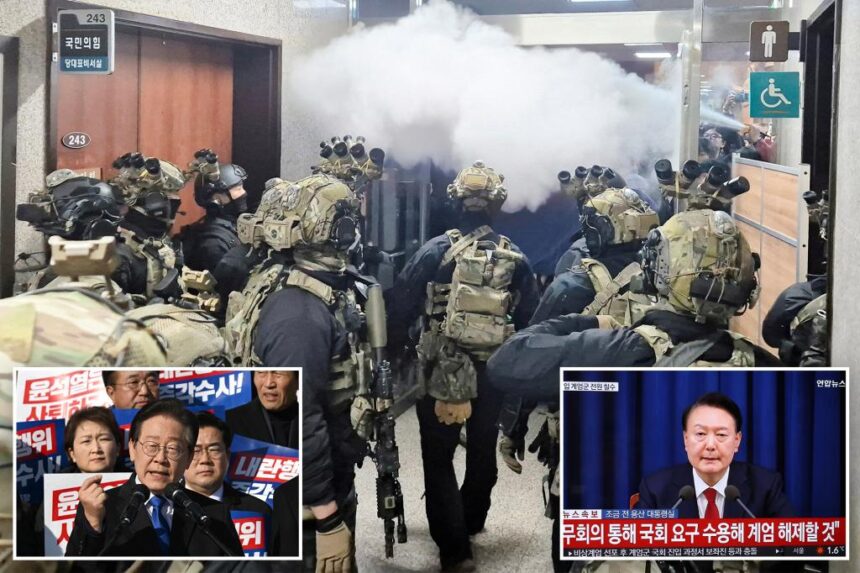South Korea’s political landscape was thrown into chaos as opposition parties moved to impeach President Yoon Suk Yeol, following his controversial decision to impose a short-lived martial law. The motion, which requires the support of two-thirds of parliament and at least six Constitutional Court justices, could lead to Yoon’s removal from office.
Yoon’s abrupt declaration of martial law, aimed at quelling “anti-state” forces, was met with swift opposition from lawmakers who voted to overrule the president. The move was widely criticized as unconstitutional and a violation of democratic norms.
As pressure mounted on Yoon to resign, his senior advisers and Cabinet members faced calls to step down. The nation grappled with the aftermath of a tumultuous night that saw troops encircle parliament and military helicopters flying overhead.
The liberal opposition Democratic Party, which holds a majority in parliament, called for Yoon’s immediate resignation or threatened impeachment. The People Power Party, led by Han Dong-hun, a close ally of Yoon, also condemned the martial law declaration as unconstitutional.
If Yoon is impeached, Prime Minister Han Duck-soo would assume presidential responsibilities until the Constitutional Court rules on the case. However, with the court currently lacking the required number of justices to handle a presidential impeachment, lawmakers must expedite the process of appointing new justices.
Yoon’s actions drew comparisons to South Korea’s past military-backed governments, where martial law was used to suppress dissent. The deployment of troops and the suspension of parliamentary activities raised concerns about the erosion of democratic norms in the country.
In Washington, the White House expressed concern over the events in Seoul, highlighting the need for a peaceful resolution. The international community closely monitored the situation as South Korea grappled with political turmoil.
As the nation awaited the outcome of the impeachment motion, tensions remained high. Tourists and residents navigated the streets of Seoul, unsure of what the future held. The political crisis underscored the fragility of democracy and the need for institutions to uphold constitutional principles.
Yoon’s government and the ruling party faced mounting challenges, including a budget impasse and attempts to impeach top prosecutors. The president’s inflammatory rhetoric against the opposition added fuel to the fire, further polarizing the country.
As South Korea navigated through this turbulent period, the world watched with bated breath, hoping for a peaceful resolution to the political crisis. The events of the past few days served as a stark reminder of the importance of upholding democratic values and respecting the rule of law.






